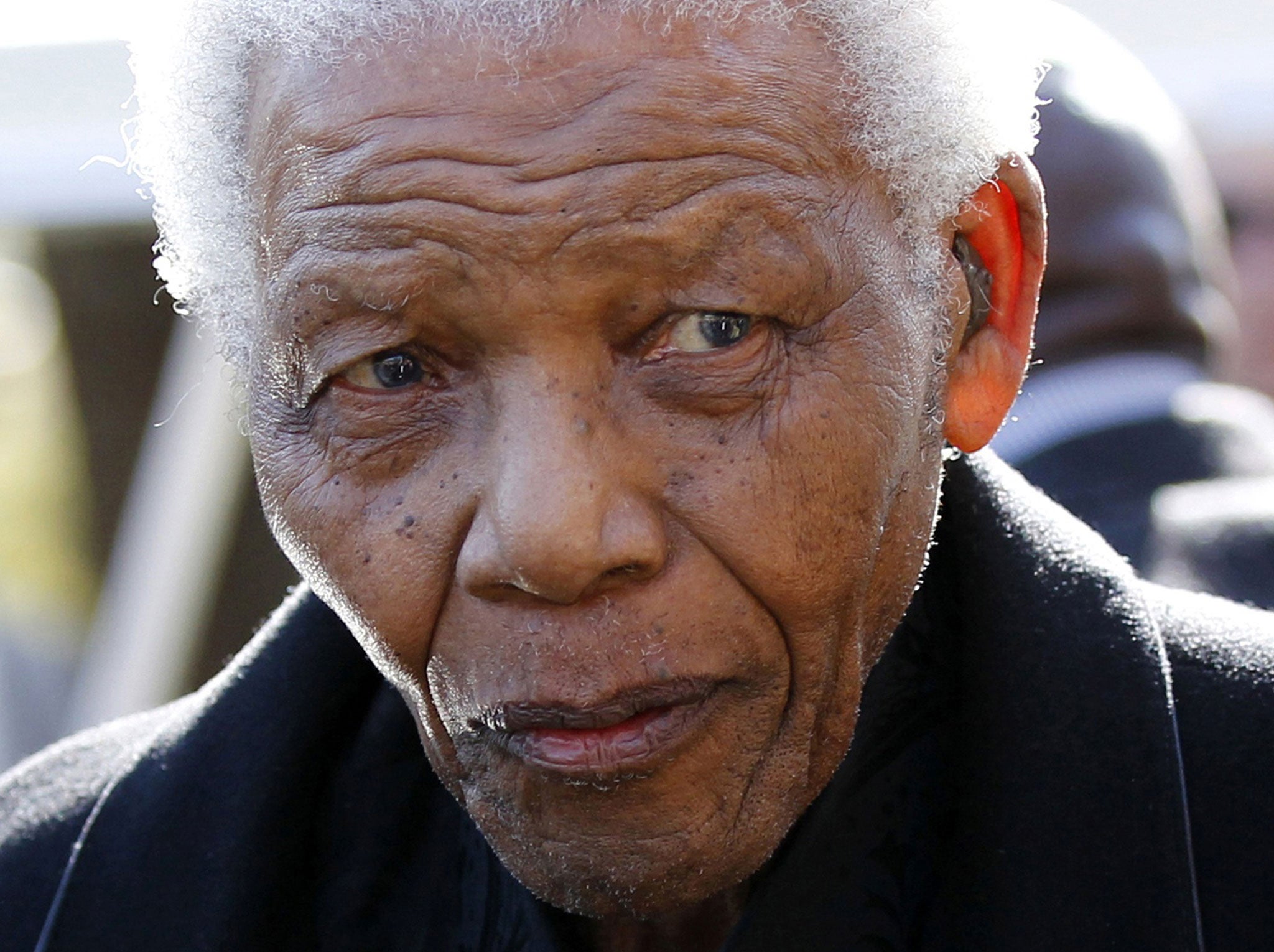Nelson Mandela: Why the world won't let go
How extraordinary for a man - a stranger to most of us - to engender such warmth and respect that so many grown-ups feel bereft at the thought of his passing

When I was a young teenager my Grandmother had dementia. Having spent endless happy childhood days with her, staying up late to watch the Mike Yarwood Show and dancing around the room to the raspy voice of Rod Stewart on her old record player – I couldn’t bear the thought of letting her go. Despite her obvious frailty and the fact she now only referred to me as “nurse”, I loved her so much that life without her seemed impossible to face. And when she passed away aged 85 I didn’t want to be consoled with “she had a good innings” or “she’s in a better place” – I simply wanted her to be with me, no matter what.
In the past few weeks it has seemed as if half the world is paralysed with that fear of loss. How extraordinary for a man - a stranger to most of us - to engender such warmth and respect that so many grown-ups feel bereft at the thought of his passing.
We all know his story – from his long incarceration to his transformation into South Africa’s President. But there have been countless political prisoners – there still are countless political prisoners - and the struggle against oppression in South Africa had been long fought by many. Here, the Boycott Movement, later the Anti-Apartheid Movement, was founded in London in 1959. This movement was at the centre of the international fight against Apartheid and made its loudest noises during the 1980s when Free Nelson Mandela T-shirts were de rigueur and we sang to Jo’anna “Gimme Hope”. So why did we take Mandela to our hearts?
I think I found the answer to that in 2003 – on a cold, grey February day in London – when I arrived at the start of a protest march due to take place against the invasion of Iraq by Tony Blair and his mates. I knew there would be a few people there, it had been talked about on the news a bit, but I was utterly gobsmacked when I arrived, at the sheer scale of the event. We walked for hours and attended a rally in Hyde Park, when we went to leave we realized the march was still coming in through the gate - seven hours after we’d joined it. I’ll never forget the atmosphere on that day, people from every walk of life, every race, every religion, every age - all chatting and smiling and sharing – because we all knew we were there for a good reason – and even though greedy arrogant people saw fit to ignore us – I think that day changed my life, and I’m hugely grateful for it.
When people come together in large numbers to stand up against evil, a huge amount of goodness is created. When people supported the Anti-Apartheid cause they took a stake in that goodness. It may be something we British don’t like to go on about, but the name for that goodness is love. And that’s what Nelson Mandela represents for us, love.
It’s true that he took up arms against the authorities, that he organised bombings to sabotage government buildings and that, despite his initial hope to avoid it, people died. But when he became President of South Africa, Mandela didn’t exact revenge on the perpetrators of the unspeakable injustice of Apartheid, hundreds of state-sponsored assassinations of activists, or the massacres in Sharpeville and Soweto – instead he set up the Truth and Reconciliation Commission. He claimed the ultimate victory over evil, by choosing forgiveness.
So the reasons for our strong feelings towards this great man are complex; his principles, his sacrifice, his commitment, his forgiveness, his kind face and wise words – but, if those reasons were a stick of rock, the word “love” would surely be written right down the middle. That love makes it hard for us to let go. That love makes loss frightening. But – we all know - that love will endure, and Mandela’s legacy will be impossible to forget and beautiful to remember. Just like Rod Stewart’s ‘Sailing’, and my Granny dancing.
Join our commenting forum
Join thought-provoking conversations, follow other Independent readers and see their replies
Comments